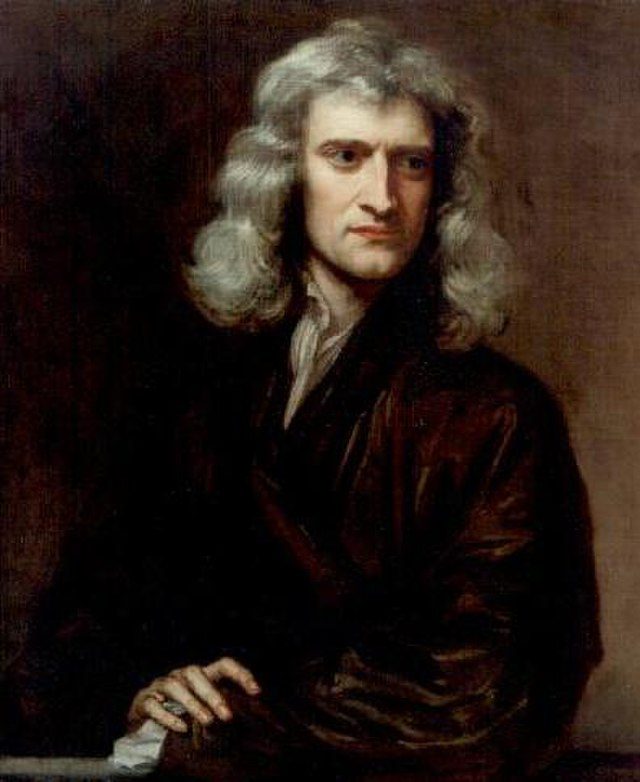
Domenico-Fetti Archimedes 1620-by Dominic Fetti-Wikimedia Commons
15 Brightest Scientists of All Time
When it comes to examining the universe’s mysteries, humans have demonstrated a strong curiosity. Many individuals developed theories, ideologies, beliefs, experiments, investigations, new ways of thinking, and surveys as early as the beginning of human settlement to make myths true. People helped science investigate various facets of nature in order to advance humankind. These brilliant individuals have always had a great interest in all phenomena. They learned something new about the world we live in as a result of their energy, passion, dedication, hard work, and effort in their profession. Because of these scientists, the world today enjoys the benefits of scientific advancement in a variety of fields related to medicine, engineering, and technology.
Without the assistance of these outstanding individuals, the world as we know it today would not have changed. We have witnessed extraordinary abilities that have helped us define our existence and the meaning of human life, from the great philosophers and masterminds of the ancient Greek age to the scientists of the present. Their contributions to the well-being of humanity through various technologies that have simplified our modern lives have left their names inscribed in the sands of time. The list below honors 15 of history’s most brilliant scientists.
Brightest Mathematicians of All Time
1. Sir Isaac Newton

Sir Isaac Newton (1643-1727)-by Godfrey Kneller-Wikimedia Commons
Sir Isaac Newton PRS was an English mathematician, physicist, astronomer, alchemist, theologian, and author who lived from 25 December 1642 to 20 March 1726. Newton, who was born in Woolsthrope, England, is well known for his law of gravitation. Since no previous theories could explain the theory of gravity and gravitation, Newton invented calculus to do so. His binomial theorem led to an infinite series that produced calculus, a new mathematical revolution that properly measured the area inside of curves and their rates of change. He also discussed the idea that tides developed as a result of the sun, moon, and earth’s gravitational pull. Additionally, he developed the reflecting telescope. The laws of Newton apply to a variety of fields, including chemistry, optics, and mechanics. In 1705, Queen Anne knighted him and gave him the title of Sir.
Read also; 20 Greatest Mathematicians of All Times
2. Archimedes
Greek mathematician, physicist, engineer, astronomer, and inventor Archimedes was from the historic city of Syracuse in Sicily. Known as the greatest mathematician ever, Archimedes produced profound and important works on mathematical physics and engineering that are still used today in both construction and machinery. Archimedes, who was born in 287 BC, is one of the greatest scientists to have made significant advances in both theory and practice. He established the groundwork for calculus by introducing infinitesimals. He estimated the areas and volumes of a sphere and parabolic segments, and he provided descriptions of the first finite geometric progression. In several domains of statics and hydrostatics, he also found the laws of the lever, density, fluid balance, and buoyancy.
3. Leonhard Euler

Leonhard Euler-by Jakob Emanuel Handmann-Wikimedia Commons
The studies of graph theory and topology were founded by Leonhard Eulerborn, a Swiss mathematician, physicist, astronomer, geographer, logician, and engineer who lived from 15 April 1707 to 18 September 1783. He also made groundbreaking discoveries in many other areas of mathematics, including analytic number theory, complex analysis, and infinitesimal calculus. He popularized a lot of contemporary mathematical jargon and notation, such as the idea of a mathematical function. His contributions to mechanics, fluid dynamics, optics, astronomy, and music theory are also well known.
Brightest Philosophers of All Time
4. Aristotle
Aristotle was a brilliant Greek philosopher and scientist who was a student of Plato and a teacher of Alexander the Great. Aristotle, who was born in 384 BC-322 BC, was a master of rhetoric and logic as well as a biologist, zoologist, ethicist, and political scientist. He offered physics and metaphysics hypotheses as well. His wide-ranging thinking and prolific writings helped him obtain expertise in a variety of subjects. Only a small portion of his writings, though, have been preserved to this day. Aristotle gathered specimens of plants and animals and categorized them according to their traits, setting the bar for further research. Further theories on the philosophy of science were provided by him. He expanded on Plato’s assumption that the planet was a globe and approximated its size. Through his study of flora and fauna, where the chain of life evolved from simple to more complex, he was able to explain how life began.
5. John Locke

John Locke-by Godfrey Kneller-Wikimedia Commons
The father of liberalism and one of the most important Enlightenment thinkers, John Locke was an English philosopher and physician who lived from 29 August 1632 to 28 October 1704. Locke firmly opposed the idea that rulers have a divine right to rule and supported everyone’s right to life, liberty, and property. He also held that the people had the right to overthrow a king by force if he violated citizens’ rights. He firmly felt that a government’s primary responsibility is to serve its constituents.
Read also; 10 Famous Computer Scientists you should know About
Brightest Physicts of All Time
6. Galileo Galilei
Galileo di Vincenzo Bonaiuti de’ Galilei, frequently referred to as a polymath, was an Italian astronomer, physicist, and engineer who lived from 15 February 1564 to 8 January 1642. Galileo has been referred to as the “father” of modern science, observational astronomy, modern physics, the scientific method, and contemporary science in general. While observing a chandelier swing in the Pisa cathedral, he made the discovery of the law of the pendulum. Additionally, he saw that the moon’s surface had craters and other holes and burrows that were not smooth. Galileo discovered four moons that orbit Jupiter and bear his name. He validated Copernicus’ assertion that the sun is at the center of the solar system.
7. Albert Einstein

Albert Einstein 1921-by Ferdinand Schmutzer-Wikimedia Commons
German-born theoretical physicist Albert Einstein, who was born on March 14, 1879, and died on April 18, 1955, is regarded as one of the greatest and most important physicists of all time. Because of his involvement in the development of the general theory of relativity, the “Man of the Century” is considered the father of modern physics for his outstanding contributions to the field. His theory is the foundation for the bomb and the most well-known equation in the world, E=mc2. The impact of Albert Einstein’s brilliant mind on scientific progress in the world is enormous. For his theoretical physics work and for discovering the photoelectric effect, this exceptional talent received the Nobel Prize in 1921.
8. Marie Curie Sklodowska
Marie Salomea Skodowska-Curie, a Polish and naturalized-French scientist and chemist who conducted groundbreaking research on radioactivity, was born on November 7, 1867, and died on July 4, 1934. She was the first woman to receive a Nobel Prize, the first and only female recipient of two Nobel Prizes, and the only recipient of awards in two different scientific disciplines. Due to her tenacity to work, Marie Curie has always served as a source of motivation and inspiration for many female scientists. She created the first portable X-ray machine, which was used to examine wounded combatants. Another fantastic innovation of hers is radium. Curie tested many elements for radioactivity and discovered thorium. Additionally, she created the pitch-blend, a radiation source used in a mixture more potent than uranium or thorium. Because of her development of radioactive materials, she is frequently referred to as “the mother of the atom bomb.”
Read also; 20 Most Famous Female Scientists
9. Michael Faraday

Michael Faraday-by Wellcome Collection-Wikimedia Commons
English scientist Michael Faraday, who lived from 22 September 1791 to 25 August 1867, made significant contributions to the fields of electrochemistry and electromagnetic. His major discoveries include the fundamentals of electrolysis, diamagnetism, and electromagnetic induction. Additionally, Faraday published studies on optical deceptions, gas condensation, and the separation of benzene from gas oils. He also published volumes on “Experimental Studies in Electricity” and “The Chemical History of the Candle.”
10. Thomas Alva Edison
Thomas Alva Edison was an American inventor and businessman who lived from February 11, 1847, to October 18, 1931. He created numerous innovations in the production of electric power, mass communication, sound recording, and motion pictures. He also created the kinetoscope, a device for viewing moving pictures, and enhanced Graham Bell’s telephone. He was observed putting in almost two full days of work. With the use of his electro-graphic vote recorder for the parliament’s legislative branch, Edison invented the digital voting method. He also put out suggestions for vacuum-preserving fruit.
11. Nikola Tesla

N.Tesla-by Unknown author-Wikimedia Commons
Nikola Tesla, a Serbian-American inventor, electrical engineer, mechanical engineer, and futurist who was born on July 10, 1856, and died on January 7, 1943, is most remembered for his contributions to the creation of the modern alternating current (AC) energy delivery system. Tesla was fluent in eight languages, could memorize an entire book after only one reading, and could build a device after only viewing it once. Nearly all of the inventions that were eventually made by other scientists during Tesla’s time were his own creations, and he never disclosed any of them. Tesla developed the first hydroelectric power plant in Niagara Falls, cryogenic engineering experiments, transistors, and the first radio wave recorder from space.
The best inventions by Tesla are the remote control, neon lighting, contemporary electric motor, and earthquake machine. He truly possessed intelligence. However, the majority of his concepts and creations were either plagiarized, misappropriated, or appropriated by someone else. He developed a method for using electric lightning to power a house, but he kept it to himself out of fear that someone else might steal it.
Brightest Chemists of All Time
12. Joseph Priestley
English chemist, natural philosopher, separatist theologian, grammarian, multi-subject educator, and liberal political thinker Joseph Priestley (born 24 March 1733; died 6 February 1804) was also a multi-disciplinary educator. Priestley was the first scientist to discover oxygen. He discovered that mice could survive longer with the new air than with regular air when they were enclosed in a tightly closed container filled with it.
13. Alfred Nobel

Alfred Nobel3-by Unknown author-Wikimedia Commons
Alfred Bernhard Nobel, a Swedish chemist, engineer, inventor, businessman, and philanthropist, lived from October 21, 1833, until December 10, 1896. It’s safe to claim that you’re one of the top thinkers in your profession if the most prestigious honors in academia are given in your honor. Alfred Nobel was a highly successful scientist who is credited with creating dynamite, which has historically proven to be incredibly beneficial for blasting tunnels, establishing trains, and building roads. He also possessed remarkable linguistic abilities (he was fluent in four foreign languages).
Brightest Biologosts of All Time
14. Charles Darwin
English naturalist, geologist, and biologist Charles Robert Darwin (born 12 February 1809; died 19 April 1882) is well known for his work on evolutionary biology. Darwin, the most well-known biologist in the world, is famed for his “Theory of Evolution.” He is also referred regarded as the father of evolution because of this. He also put out other ideas, such as the idea that “all life originates from a single source.” Charles wrote the well-known book “On the Origin of Species,” which is a synthesis of his studies and observations. The Galapagos Islands, a small group of islands in South America, are where Darwin saw and realized a diverse range of creatures, each expressing unique features. Then he focused on about fifteen different bird and animal species.
Read also; Top 20 Most Famous Black Scientists
15. Gregor Mendel

Gregor Mendel-by Unknown author-Wikimedia Commons
Austrian biologist, meteorologist, mathematician, Augustinian monk, and abbot of St. Thomas’ Abbey in Brünn (Brno), Margraviate of Moravia, Gregor Johann Mendel was born on July 20, 1822, and died on January 6, 1884. Known as the father of “Modern Genetics,” Mendel, found those particular dominating features in the same species, which he researched by examining pea plants. This finding, now known as the “Mendelian Inheritance” found that some features are more prevalent than others and have a significant impact on an organism’s genetic makeup. Gregor opened the way for others to follow after the release of his “Experiments on Plant Hybridization.” The groundwork for further research on evolution and genetics was created by Mendel.
Scientists have a crucial role in society because they provide detailed explanations of how the world functions. Science has been a tremendous tool for staying alive.
Planning a trip to Paris ? Get ready !
These are Amazon’s best-selling travel products that you may need for coming to Paris.
Bookstore
- The best travel book : Rick Steves – Paris 2023 – Learn more here
- Fodor’s Paris 2024 – Learn more here
Travel Gear
- Venture Pal Lightweight Backpack – Learn more here
- Samsonite Winfield 2 28″ Luggage – Learn more here
- Swig Savvy’s Stainless Steel Insulated Water Bottle – Learn more here
Check Amazon’s best-seller list for the most popular travel accessories. We sometimes read this list just to find out what new travel products people are buying.










